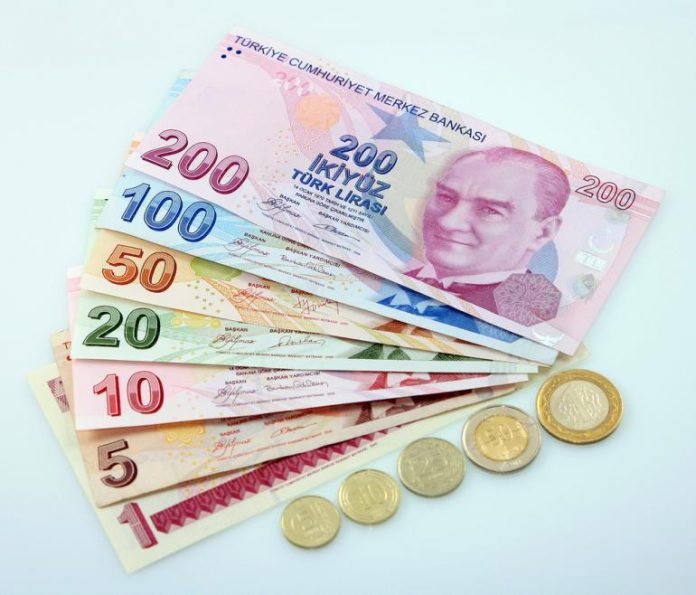
TOKYO: The euro stood near a one-year low against the dollar and the Swiss franc on Tuesday, remaining under pressure as the Turkish lira wobbled on worries that Turkey’s economic woes could hit European banks and spread to other emerging economies.
Investors are nervous the plunge in the lira could prompt capital outflows from other emerging economies that run a hefty current account deficit and rely on foreign capital.
The euro traded little changed at $1.1410, having fallen to a 13-month low of $1.1365 on Monday. So far this month it has lost 2.4 percent.
Investors have rushed to the safe haven Swiss franc, which hit a one-year high of 1.1288 franc per euro on Monday and last stood at 1.1337.
The Turkish lira slipped as much as 0.6 percent in early Asian trade on Tuesday to 6.955 per dollar, though it hovered above a record low of 7.24 hit on Monday after the central bank pledged to provide liquidity.
The currency last stood at 6.9349.
The lira has fallen almost 30 percent so far this month on concerns about President Tayyip Erdogan’s reluctance to raise interest rates despite rising inflation and a deepening diplomatic rift with the United States.
Onshore Chinese yuan, which had retreated roughly 0.7 percent the previous day, falling along with its emerging market peers, was a shade firmer at 6.8851 per dollar.
The yuan’s bounce was limited following the release of downbeat economic indicators, and it remained in reach of a 15-month trough of 6.8965 set earlier this month.
China’s economy is showing further signs of cooling as the U.S. prepares to impose even tougher trade tariffs, with investment in the first seven months of the year slowing to a record low and retail sales softening, data released on Tuesday showed.
The yen, often perceived to be a safe haven because of Japan’s net creditor status, edged back against the dollar along with a slight ebb in risk aversion, with the Nikkei bouncing more than 1 percent after two days of steep losses on Turkish jitters.
The dollar was 0.05 percent higher at 110.79 yen, off a 1-1/2-month low of 110.10 touched on Monday.
The greenback was also helped against the yen by rises in U.S. bond yields. The 10-year U.S. Treasuries yield bounced back to 2.877 percent from a three-week low of 2.848 percent.
Already on Monday, Indonesia’s central bank intervened to defend the rupiah while India’s central bank was seen intervening after the rupee hit a record low.
The South African rand also fell more than 10 percent at one point on Monday to hit a two-year low of 15.70 to the dollar, although it later pared much of losses. It last stood at 14.31.
Argentina’s currency fell 2.4 percent to close at a record low 29.97 per dollar on Monday, as a local corruption scandal added to its woes, prompting the country’s central bank to hike interest rates by 5 percentage points to 45 percent.





